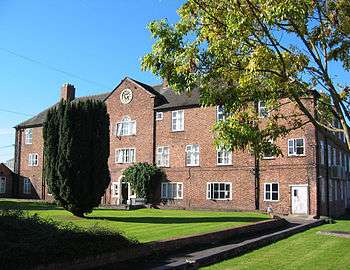Poor Act 1552
The Poor Act of 1552 was a statute passed in England by King Edward VI.[1] It is a part of the Tudor Poor Laws.
The act designated a new position, "collector of alms," in each parish. It further provided that each parish would keep a register of all its licensed poor. The collector was to determine how much was needed to care for the poor of the parish and assess weekly amounts on residents. Therefore, under the assumption that all poor would be cared for, begging was completely forbidden.[2]
References
This article is issued from Wikipedia - version of the 8/27/2015. The text is available under the Creative Commons Attribution/Share Alike but additional terms may apply for the media files.
